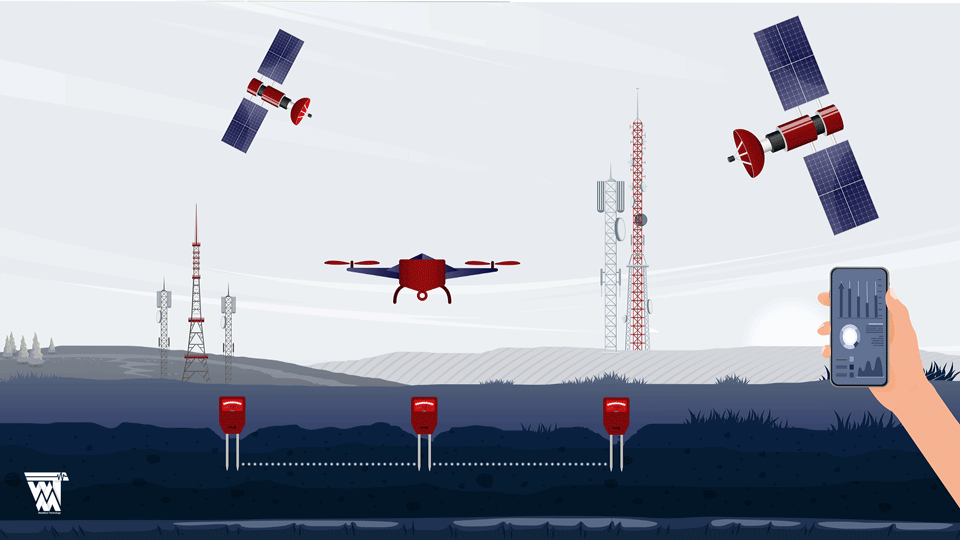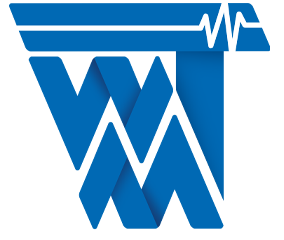Precision farming, also known as precision agriculture, represents the pinnacle of technological innovation in the agricultural sector, perfectly aligning with MaxWave Technology’s expertise and missions. At its core, precision farming aims to optimize agricultural practices by leveraging advanced technologies to precisely manage resources such as water, fertilizers, and pesticides, thereby increasing productivity, efficiency, and sustainability. MaxWave Technology employs a constellation of sensors embedded in soil, drones, satellites, and other platforms. This constellation is meticulously designed to improve sensing, connectivity, and ultimately, agricultural benefits, enabling farmers to make data-driven decisions with unprecedented accuracy and efficiency. Through this integrated approach, we empower farmers to unlock the full potential of precision farming, driving greater yields, profitability, and environmental stewardship.
MaxWave Technology’s proficiency in RF and microwave solutions, coupled with our commitment to sustainable sensing, reliable connectivity, and ubiquitous energy, positions us as a key player in the realm of precision farming. By integrating satellite imagery, drones, IoT sensors, and other cutting-edge technologies, we provide farmers with invaluable insights into their fields, allowing for precise monitoring and management of crops and resources.
Satellite imagery plays a crucial role in precision farming, offering a bird’s-eye view of large agricultural areas and providing detailed information about crop health, soil moisture levels, and environmental conditions. By analyzing satellite data, farmers can identify areas of concern, optimize irrigation schedules, and make informed decisions to maximize yields while minimizing resource wastage.
Drones, equipped with advanced sensors and imaging technology, offer another dimension to precision farming. With the ability to fly over fields and capture high-resolution imagery, drones provide farmers with real-time data on crop health, pest infestations, and other factors affecting yield. This enables proactive measures to be taken, such as targeted pesticide application or precision irrigation, leading to more efficient and sustainable farming practices.
Furthermore, MaxWave’s expertise in IoT sensors enables the deployment of wireless sensor networks across agricultural fields, allowing for continuous monitoring of soil moisture, temperature, humidity, and other critical parameters. By collecting data at a granular level, farmers can precisely tailor their agronomic practices to optimize crop growth and minimize input costs.
In essence, precision farming represents the convergence of technology and agriculture, where data-driven insights and advanced analytics empower farmers to make smarter decisions and achieve greater yields with fewer resources. With MaxWave Technology at the forefront of this revolution, we are dedicated to empowering farmers with the tools and technologies they need to feed a growing population while safeguarding the environment for future generations.

One of the fundamental components of a smart farm is the remote monitoring of water resources. By installing sensors in water tanks or irrigation systems, growers can accurately monitor water levels and usage, allowing for efficient water management strategies. Real-time data on water availability enables growers to optimize irrigation schedules, prevent water wastage, and ensure that crops receive the precise amount of water required for optimal growth.

In the realm of modern agriculture and food supply chains, the concept of “farm to fork” monitoring has emerged as a critical tool for ensuring the quality and safety of crops throughout the entire journey from production to consumption. Central to this concept is the ability to remotely monitor the status of crops during transportation, leveraging technologies such as GPS tracking and wireless sensors to gather real-time data on various parameters.
One of the key benefits of farm to fork monitoring of crop transportation is enhanced quality control and food safety. By installing sensors in trucks or containers, growers and food producers can monitor crucial factors such as temperature, humidity, and storage conditions during transit. Real-time monitoring allows for early detection of potential issues such as temperature fluctuations or spoilage, enabling timely interventions to preserve the quality and freshness of the crops.
Moreover, farm to fork monitoring of crop transportation promotes efficiency and sustainability in food supply chains. By optimizing transportation routes and logistics based on real-time data, growers and food producers can reduce fuel consumption, minimize carbon emissions, and mitigate food waste. Additionally, remote monitoring allows for proactive maintenance of vehicles and equipment, reducing the risk of breakdowns or delays that could compromise the quality and safety of the crops.

